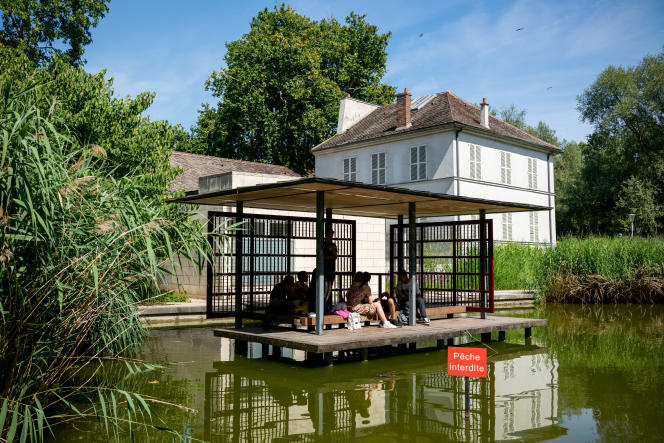The heat wave that affects France must be marked, Thursday, July 14, by strong heat “south of a Vendée-Strasbourg line”, according to Météo-France. The maximums reach “37-38°C in the South-West and in the middle and lower Rhône valley”. “Only the Mediterranean coast and the Atlantic coastal fringe remain below 35°C thanks to the breezes”, reports the meteorological service.
As a result, eleven departments have been placed on heat wave orange vigilance. These are Gironde (33), Lot-et-Garonne (47), Tarn-et-Garonne (82), Tarn (81), Haute-Garonne (31), Pyrénées-Orientales ( 66), Gard (30), Ardèche (07), Drôme (26), Vaucluse (84) and Alpes-de-Haute-Provence (04).
In many places, the July 14 festivities have been adapted or even canceled due to the heat and the high risk of fire. Fireworks have been banned. Until Monday evening, no pyrotechnic show, private or public, will be able to illuminate the night in the Landes, communicated the prefecture.
In Gironde, two forest fires that have been raging since Tuesday have burned 4,200 hectares. “At 1 p.m., the situation remained unfavorable”, according to the prefecture, which specified that “nearly a thousand firefighters” were engaged. Winds expected in the afternoon, up to 40 kilometers per hour, could further complicate the task of firefighters.
Temperatures will remain “very high” on Saturday
According to Météo-France, on the night of Thursday to Friday, the minimum temperatures will be “close to 19 to 21°C in the southern half of the country, even 22°C in large cities” and will go “up to 23- 24°C in the interior of Languedoc-Roussillon”.
On Friday, “the heat is expected to ease a little north of a Bordeaux-Lyon line”, but that “maximums remain very high further south and intensify, with values close to 38°C at 40°C”.
On Saturday, temperatures will remain “very high over the southern half and will begin to rise slowly over the northern half.” “The extension of the high heat to the north will increase on Sunday and especially on Monday.”
According to Météo-France, heat waves will become “more frequent, earlier and later”, causing summers “increasingly hot, where 35°C will be the norm”.
For scientists, the multiplication, intensification and lengthening of heat waves are an unequivocal marker of global warming.

















